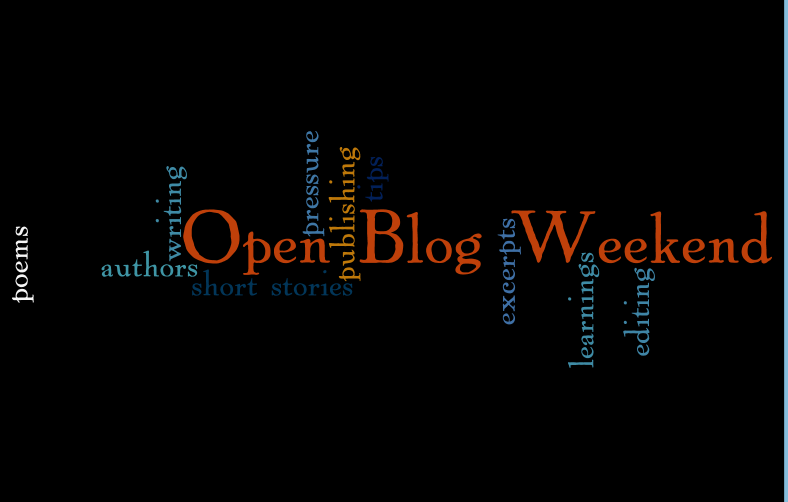Open Blog Weekend: I always knew I wanted to be a writer; I had no idea I was going to be a publisher by Richard Watt
We live in a remarkable time for the publishing industry. As traditional publishers merge and traditional booksellers struggle to stay profitable, there has been an explosion of home-grown independent authors who are learning that nothing need be impossible if you put your mind to it.
Even ten years ago, to be self-published was to be vanity published; the self-published author was likely one who had explored every avenue of finding an agent and a publisher, and had finally given up and paid to have a few copies run off, so that at least he or she could hold a printed copy of their text in their hands and say “look; I’m a published author.”
Today the picture has changed so dramatically that self-published authors are landing movie deals, and many thousands of authors who might not ever have been published are finding their books being bought, read and enjoyed by complete strangers. It’s an exaggeration to say that the industry has been turned on its head, but it’s not much of one.
So, presuming that you have a story in you which you want to share with the rest of the world, how do you go about getting it in the hands of your eager readers?
• First and foremost, you must have a story. Many people believe they can write, but no-one should write because they want to be a famous author; better to write because you have a story which wants to be told.
• Next, you have to write it. There’s no getting round this part – the book isn’t going to write itself, and it isn’t going to be done just because you typed the words ‘The End’ on the last page. Anyone who tries to publish their first draft is asking for ridicule – the preferred method is, having written it once, put it away and do something else for a while, then dig it out and start again. Repeat until you can’t possibly improve it. Then improve it.
• Have other people read it. The current expression is ‘Beta Readers’, an unlovely borrowing from the computer game industry, but those beta readers are your best audience. Choose them wisely (and, if possible, include at least one who doesn’t know you and will feel no obligation to be nice to you). Listen to everything they say, even if you disagree with it, and then start rebuilding your story so it will appeal to readers.
• Get it proof-read and edited. At this point, many will be tempted to skip to the part where they get to press the big shiny button which says ‘Publish my book!’ It’s a temptation which should be resisted. You’ve worked hard to produce the best possible text you can, so don’t start cutting corners now. The trouble is, an old publishing adage says that money should flow towards, not away from, the author, and this and the next steps are going to cost money.
• There’s a new publishing adage: ‘if you want people to invest in your work, you’re going to have to invest in it yourself first.’
• Once the text is perfect, make the cover perfect. Unless you have graphic design expertise and access to expensive software, this means spending some more money to get it done professionally. If you’re not sure, have a look at a few dozen books by independent authors and ask yourself which of them you’d pick up. Chances are, the answer will be ‘the ones which have professionally designed covers’.
• Get a professional photographer to take some author photos.
• Spend as much time and money as you can afford on marketing and publicity. Your book is one of thousands published in any given week. Your prose may stand out from the crowd, but it won’t if no-one hears about it. This is where social media comes in. For every author whose Facebook page has doubled sales, you’ll find one who maintains that it’s all a waste of time. The truth is that this is all so new, nobody knows what works and how. But your book having a presence on your website, its own dedicated page, and every social media platform you can think of isn’t going to hurt.
• Start work on getting it distributed before your publication day. Decide on a strategy, read as much as you can about what works for other authors in your genre, and get to work. Some authors prefer to be electronic only, and this is generally easier to achieve, but not having a print strategy will hurt sales in the long run. Don’t underestimate how long it will take for all the various formats to be ready; you don’t want to miss your publication date because Smashwords is still reviewing your files.
• Relax. Getting to publication day is hard work, especially if you are the kind of person who likes to work on every tiny detail (and you should be!) Once the book is out there, there are still plenty of things you can be doing to promote yourself and your title, but you also need to understand that sales will come gradually, that reviews won’t come flooding in on day one, indeed may never flood in at all, and that the work you do today may not pay off until 6 months down the line when someone you’ve never met recommends your book to exactly the sort of person who will spread the word enthusiastically.
• Meanwhile, haven’t you got another book to be working on?
Richard Watt, October 2014
http://richardwatt.ca













Great post! It’s true, Indies need to juggle so many talents…